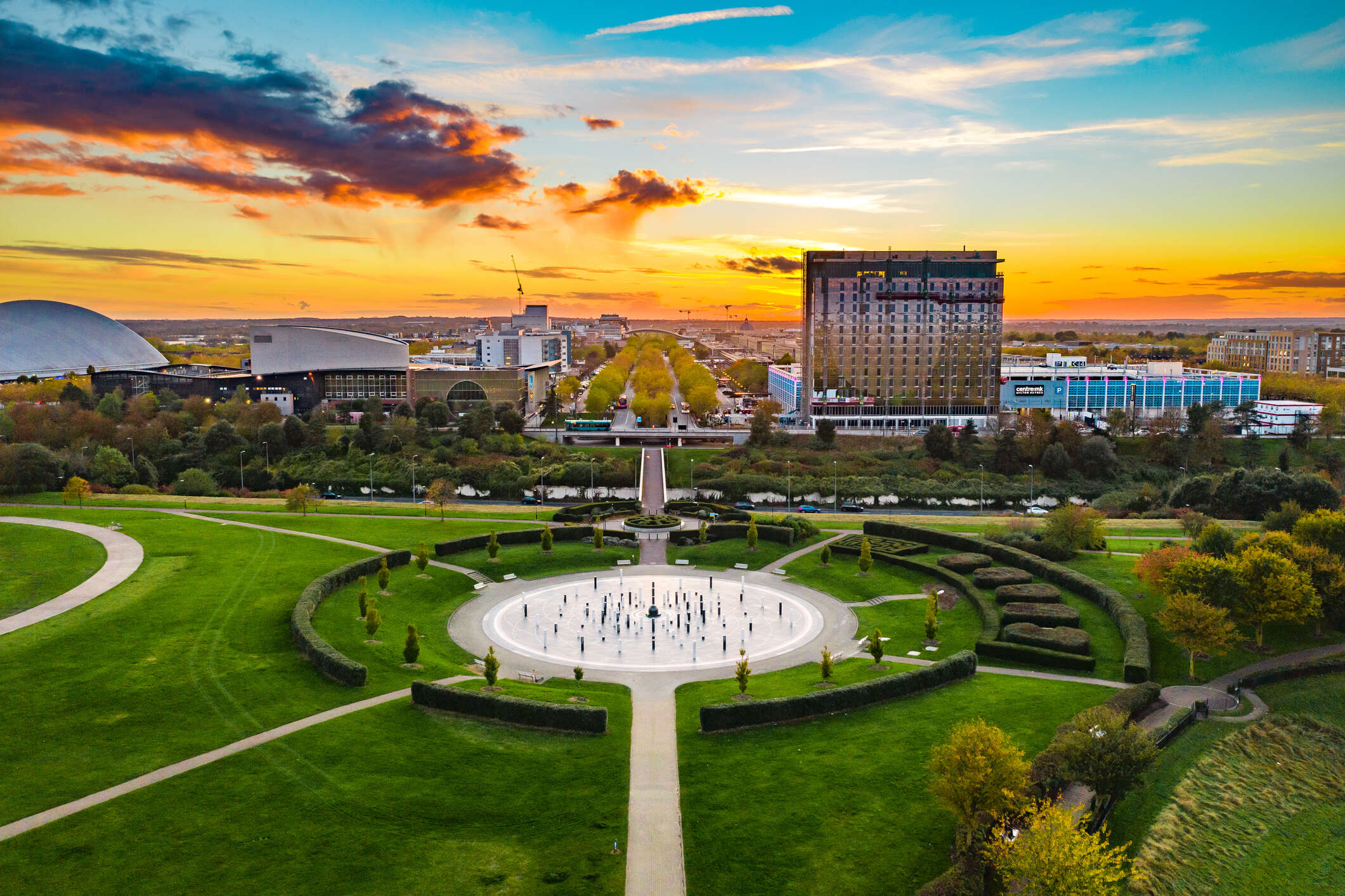
In 2022, as part of the Queen’s Platinum Jubilee celebrations, eight more towns across Britain became cities. But when you think of the great cities of history what springs to mind? Alexandria? Benin? Rome? Now there are some new kids on the block.

England’s Milton Keynes, Colchester and Doncaster all became cities as part of the Queen’s festivities, alongside Bangor in Northern Ireland, Douglas on the Isle of Man, Dunfermline in Scotland, Stanley in the Falkland Islands and Wrexham in Wales.
When does a town become a city?
It has always been the prerogative of the monarch to bestow city status; in more recent times, this decision has been informed by reports from the Home Office. But, much to the distress of town councils across the country, the process has always seemed arcane and secretive.
For example, a rumour persisted well into the 20th century that the presence of a cathedral was required in order for a town to be considered for elevation. This association was established when Bristol, Chester, Gloucester, Oxford and Peterborough were all elevated to the status of a city, at the same time as they were chosen as the seats of new dioceses by Henry VIII.
But this practice came to an end in 1889 when Birmingham was a successful applicant for city status on account of its large population and history of good government.
With this precedent broken it was decided that new criteria would have to be adopted and rigorously enforced and, in 1907, the Home Office and Edward VII came to a secret agreement on a policy which remains in place today. The policy dictated that for a town’s application for city status to be accepted it must fulfil three criteria:
- A minimum population of 300,000;
- A record of good local government;
- A “local metropolitan character”.
So a town becomes a city when it fulfils these three criteria. Simple, right?
Except incredibly, very few towns which have been granted city status actually fulfil all three criteria. At the time of their elevation, none of these cities claimed a minimum population of 300,000. When a government department creates policy, only to never actually enforce it, it poses the question of quite what purpose it served in the first place.
To add insult to injury, it is these criteria that have been used to bat away the applications of towns such as Croydon time and time again – making these decisions seem at best arbitrary, at worst vindictive.
Croydon, which has tried several times to achieve city status, is the thirteenth-largest district in England by population, ahead of the likes of Coventry, Leicester, and Newcastle. The sticking point has therefore always been those other two criteria. In 1951, its application was denied due to reports of poor government. More recently it has been down to Home Office officials considering Croydon “to have no particular identity of its own”, which seems a particularly aggressive tone for government employees to take when rejecting an application.
Admittedly, it is already somewhat confusing that metropolitan Greater London, not officially a city, should contain two such official cities within it (London and Westminster). Yet to claim that areas such as Croydon and Southwark – which has also previously applied for city status – lack an identity shows a lack of appreciation for local cultures and communities. Croydon has, after all, long languished in the shadow of London, too distant from the centre to truly reap the benefits of a connection to the capital but too far to claim independence.
Despite this Croydon shows all the hallmarks of a modern city. It is home to the only tram network in London, with passengers making 29.5m journeys in a year. Its cultural output makes it look like Renaissance Florence, in comparison to most of the country: Croydon is the home of Stormzy, Nadia Rose, the BRIT school, and the birthplace of Dubstep.
The arrival of Westfield and Boxpark even shows the town can gentrify with the best of them. If the rules can be broken for twenty-four other towns, why not Croydon?
To many this town’s seemingly futile attempts to be something more than it is may seem unimportant. But for Croydon it is a decades-long quest to be something other than the butt of a joke.






